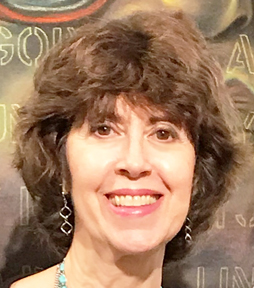Sweet Dreams is a
documentary that chronicles how a group of Rwandan women survived destruction
and mass murder, and then embarked on the tenuous path of healing. Against the
backdrop of the lush green Rwandan countryside, the film informs viewers that
1994 was the year of genocide in Rwanda. Later in the narrative, the historical context --referencing
European colonialism--is recounted. The country had been under Belgian rule for
forty years. During this time frame, the Tutsi tribe was favored over the Hutu
sector. With the advent of independence, the Hutus came to power and oppressed
the Tutsis. This ongoing struggle between the ethnic groups led to a government
directive inciting those of Hutu origins to "do their duty and kill all
Tutsis." It is estimated that 800,000 to one million people died.
The
common denominator of the film is the powerful figure of Odile "Kiki" Katese , a
Rwandan theater director. With a singular vision she smashed gender barriers by
founding Ingoma Nshya ,
an all-female drumming troupe. It was unprecedented in the nation's history.
Katese then spearheaded an initiative to bring economic independence to Rwandan
women by establishing an ice cream store in their community.
Through the artistry and energy of drumming, Katese saw a channel for the many who were broken. As she related, "Bodies are moving, but inside they are dead." The drumming group had only one rule for those who joined--no discussion of what place in the genocide they were a part of. Her goal was to construct a safe space where widows, orphans, and perpetrators would bond as individuals.
Those private stories are revealed to the audience. We learn about Marta, whose husband--from a different tribe--was killed. She had been targeted for the child she was pregnant with. Olive's spouse is in prison for his role in taking part in the violence. As a child, Seraphine witnessed the carnage. She doesn't know what happened to her parents. Regine, whose parents are in jail, tells of her shame and hatred toward her mother and father. She went to the families of their victims and asked to be absolved of blame. It is with them, and peers who have suffered loss that she spends April, the national month of mourning.
There is a scene devoted to the event in April, at the National Stadium, when Rwandans come together to acknowledge the tragedy. Amid the words of a formal speech being delivered by President Paul Kagame , screams and wails of pain and anguish can be heard. Many of those in overwhelming distress are taken to parked ambulances outside of the stadium.
It is the drumming,
Olive explains, that "helps her." Regine elucidates that she finds peace in
drumming. She says, "That's where I was reborn."
The producer/director
sibling team behind the documentary, Lisa and Rob Fruchtman ,
went beyond the story of the drumming troupe--following Katese on her journey to
bring economic autonomy to the women in Butare, Rwanda. After Katese met the
owners of the Brooklyn Blue Marble Ice
Cream shop , Jenny Dundas and Alexis Miesen, a partnership began to
initiative a co-operative of
women from the drumming troupe to run an ice cream store.
As they undertake the
new business venture, there are reminders of former times. Prisoners are a
large part of the workforce (100,000 people were jailed for genocide
activities), and they show up from a prison labor group as part of the building
team.
There are
disappointments, as only ten women are chosen to be part of the store's team.
Technical problems stall the ice cream machine production. The
predicament is resolved and the grand opening is exhilarating. At the ribbon
cutting it is said, "When you believe something is possible, it's already
done." Nine days later, they have no customers.
Yet the women
preserve. They bring the message of their drumming and store to the community.
They get a break with a radio interview that promotes their performance
with male drummers from Burundi. It is a boost for both their art and their
business.
The
drummers have been invited to play in Holland, France, Senegal, and South
Africa. Currently, thirty women drummers have joined the ice cream co-op, which
they now own outright. As one woman shared, "I've learned how I can go from a
miserable life to a better one."
Katese imparted an insight that spoke to the themes within the film. She said, "Reconciliation is not only about two people. People have to reconcile with themselves and with life."
To learn more about the genesis of the film, I reached out to Rob Fruchtman. He answered my questions by e-mail .
How did you first hear about the work of Kiki Katese and Ingoma Nshya?
"We heard about
Kiki and Jennie through an associate of an international theatre lab that they
both attended. She described their fateful encounter, and we were intrigued.
Soon, we were hooked on the story."
Was the storyline
originally planned to cover just the drumming troupe? When did you decide the
ice cream shop would be integral to the documentary?
"We
felt both story lines were important and within the theme of reconciliation and
bringing joy and inspiration to Rwandans. One would have been enough, but two
was a bounty!"
(Note: You can view every article as one long page if you sign up as an Advocate Member, or higher).





